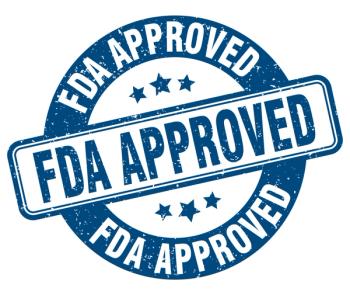
- Drug Topics September/October 2024
- Volume 168
- Issue 07
FDA Authorizes IND For Phase 2 Clinical Trial Evaluating Treatment for Post–COVID-19 Condition
Bezisterim acts on inflammatory signaling pathways and may be a viable treatment option for post–COVID-19 condition, or long COVID.
The FDA has authorized BioVie’s investigational new drug application for the evaluation of bezisterim to treat neurological symptoms associated with
In a phase 2, randomized, placebo-controlled, multicenter clinical trial, investigators will evaluate the safety and tolerability of bezisterim over 3 months of treatment in a cohort of 200 patients, as well as the drug’s “potential ability to reduce the neurocognitive symptoms associated with long COVID.”
Bezisterim (NE3107) acts on fundamental inflammatory signaling pathways. It selectively inhibits the inflammatory extracellular signal-regulated kinase (ERK) pathway that “reduces neuroinflammation by inhibiting inflammation-driven insulin resistance and major pathological inflammatory cascades.”2 The drug is orally bioavailable and blood-brain-barrier permeable, is not immunosuppressive, and has a low risk of drug-drug interactions. Bezisterim modulates the activation of NFkB, which modulates inflammation.1
Some individuals who
READ MORE:
BioVie’s work is being supported by the Assistant Secretary of Defense for Health Affairs and the Department of Defense. The company has received $499,200 in funding for trial planning, with the option to receive an additional $12.6 million in grant funding to initiate clinical research.
“We are delighted to announced that the FDA has authorized our [investigative new drug] application for bezisterim, allowing us to study a novel, anti-inflammatory approach for the treatment of the debilitating neurocognitive symptoms associated with long COVID,” said BioVie president and CEO Cuong Do in a news release.1 “A growing body of evidence points to inflammation as a key driver of long COVID, and we believe that bezisterim has shown promise in addressing these underlying mechanisms.”
The CDC estimates that 5.5% of US adults—more than 17 million individuals—are currently living with post–COVID-19 condition, with 3.6 million individuals reporting that they have “significantly modified their activities because of the illness.”
One of the primary hypotheses around the driver of post–COVID-19 condition is chronic inflammation. In studies of those living with post–COVID-19 condition, investigators have found elevated expression in proteins associated with inflammation, including LGALS9, CCL21, CCL22, TNF, CXCL10, and CD48, and immune regulation, including IL1RN and CD22, compared with individuals who are fully recovered from COVID-19. In those who demonstrate brain fog, “sustained systemic inflammation and persistent localized blood-brain-barrier dysfunction are key physiological features.”
Currently, bezisterim is being investigated as a treatment for both Alzheimer Disease and Parkinson Disease. Results of a phase 2 investigator-initiated clinical trial (NCT05227820) showed that patients treated with bezisterim experienced improved cognition and biomarker levels in Alzheimer Disease, while results of another phase 2 study in Parkinson disease (NCT05083260) showed that bezisterim plus levodopa led to significant improvements in “morning on” symptoms and clinically meaningful improvement in motor control compared with those treated with levodopa alone.
READ MORE:
References
1. BioVie announces FDA authorization of investigational new drug application for phase 2 trial to evaluate bezisterim in Long COVID. News release. BioVie. September 3, 2024. Accessed September 3, 2024. https://www.globenewswire.com/en/news-release/2024/09/03/2939596/0/en/BioVie-Announces-FDA-Authorization-of-Investigational-New-Drug-Application-for-Phase-2-Trial-to-Evaluate-Bezisterim-in-Long-COVID.html
2. Alzheimer’s innovations. BioVie. Accessed September 3, 2024. https://bioviepharma.com/innovations/alzheimers
Articles in this issue
over 1 year ago
FDA Approves Ceftobiprole Medocaril Sodium for 3 Indicationsover 1 year ago
The Perils of Frivolous Lawsuitsover 1 year ago
OTC Product Roundup: Topical Analgesicsover 1 year ago
FDA Approves First-Ever OTC Hearing Aid SoftwareNewsletter
Pharmacy practice is always changing. Stay ahead of the curve with the Drug Topics newsletter and get the latest drug information, industry trends, and patient care tips.























